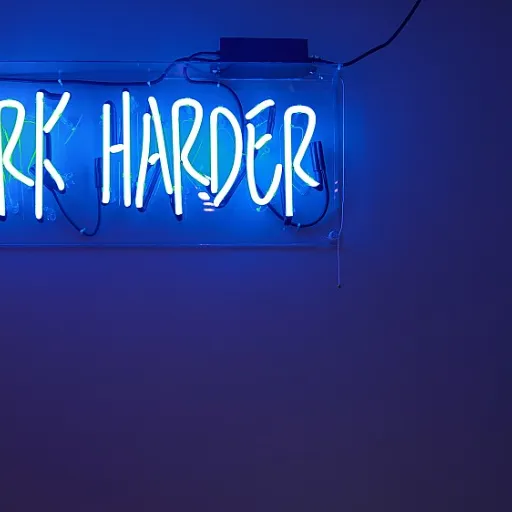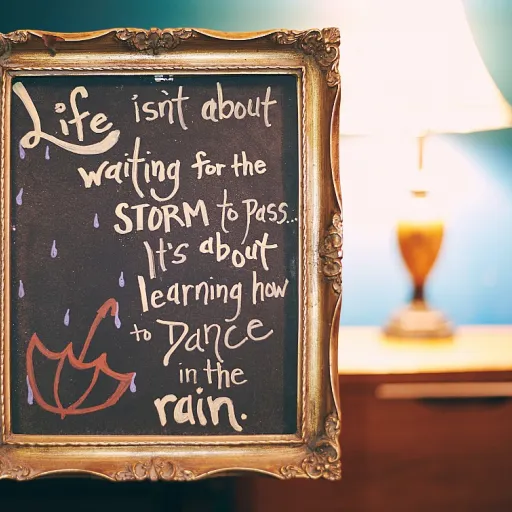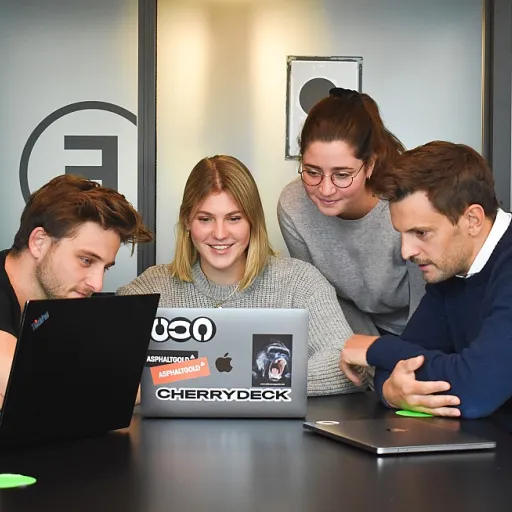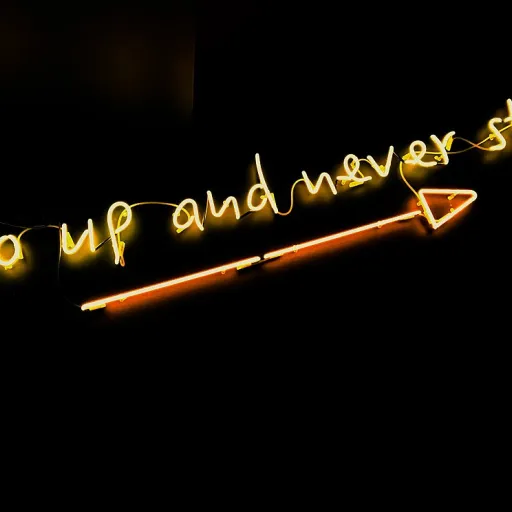
Understanding the role of humor in professional mentoring
Why Humor Matters in Professional Mentoring
Humor is often underestimated in the workplace, but it plays a crucial role in building strong mentoring relationships. When mentors and mentees share a laugh, it breaks down barriers and makes the office environment more approachable. This is especially important in mentoring, where trust and open communication are essential for growth. A funny award or a lighthearted certificate can help both the mentor and the mentee feel more at ease, encouraging honest conversations about work and career development.
Creating a Positive Work Environment
Integrating humor through fun awards and recognition ideas can transform the workplace culture. When employees see that their unique contributions are noticed—even in a playful way—it boosts morale and fosters a sense of belonging. Funny employee awards, such as "Best Desk Decorator" or "Master of the Coffee Machine," highlight the diverse personalities within a team. These awards recognize not just hard work, but also the small, everyday actions that make the office a better place.
- Encourages team building and collaboration
- Celebrates team members for their unique qualities
- Helps reduce stress and tension in high-pressure environments
- Reinforces a culture of employee appreciation and recognition
Humor as a Tool for Employee Recognition
Employee recognition doesn’t always have to be formal or serious. In fact, incorporating funny awards and creative certificate ideas can make recognition more memorable. When team members receive a silly award, it’s not just about the certificate—it’s about celebrating their role in the team and making work more enjoyable. This approach can be especially effective for engaging new employees or team members who might feel overlooked in traditional recognition programs.
For organizations looking to enhance their mentoring programs, humor can be a powerful tool. It helps celebrate team achievements, highlight individual strengths, and create a more inclusive work environment. If you’re interested in exploring innovative ways to foster a positive culture and support employee development, you might find value in learning about unlocking the potential of industry certifications in mentoring.
Benefits of incorporating silly awards in mentoring programs
Why Silly Awards Matter in Mentoring Programs
Incorporating funny awards into professional mentoring programs can have a surprisingly positive impact on the work environment. While the idea of a silly certificate or a quirky desk trophy might seem trivial, these gestures can play a key role in employee recognition and team building. When employees feel seen for their unique contributions, even in a lighthearted way, it helps foster a culture of appreciation and engagement.
Boosting Morale and Motivation
Fun awards highlight the best in each team member, celebrating not just hard work but also the personality and spirit they bring to the office. Recognizing a person for their "Best Desk Decor" or "Funniest Zoom Background" can make the workplace more enjoyable and motivate employees to participate actively in team activities. These moments of recognition can break up routine, reduce stress, and remind everyone that their efforts—big or small—are valued.
Strengthening Team Connections
When awards recognize both professional achievements and the lighter side of work, they help break down barriers between team members. Sharing a laugh over a funny employee award can spark conversations and create lasting memories. This sense of camaraderie is crucial for effective mentoring relationships, as it encourages open communication and trust.
Encouraging a Positive Office Culture
Introducing fun awards into employee recognition programs signals that the organization values a balanced approach to work. It shows that while hard work and results matter, so does having fun and celebrating team spirit. This can be especially important in hybrid or remote work environments, where maintaining a strong workplace culture requires extra effort.
- Fun awards can be shared on social media to celebrate team achievements and boost your employer brand.
- Certificates and trophies can be displayed at desks, serving as daily reminders of a positive work environment.
- Employee appreciation events that include silly awards help reinforce a sense of belonging and recognition.
For more ideas on how to celebrate team achievements and foster a supportive mentoring culture, check out this guide on exploring business internships for high school students.
Types of silly awards for work that work well in mentoring
Creative Award Ideas That Spark Engagement
When it comes to professional mentoring, the right kind of recognition can make a real difference in the workplace. Silly awards are not just about fun—they help highlight unique contributions, boost employee appreciation, and foster a positive office culture. Here are some creative ideas for funny awards that work well in mentoring programs:- The Desk Zen Master: For the team member whose workspace is always the calmest, no matter how busy things get. This award celebrates a peaceful work environment and encourages others to keep their desks organized.
- The Meeting Magician: Given to the person who can turn any meeting into a productive session, often with a touch of humor. It’s a great way to recognize those who make team building and collaboration more enjoyable.
- The Social Media Star: For the employee who always finds the best memes or shares uplifting content that brings the team together. This award highlights the value of keeping morale high and connecting employees beyond daily tasks.
- The Coffee Connoisseur: For the person who knows every coffee spot nearby or always has the best brew at their desk. It’s a lighthearted way to celebrate team members’ rituals and small joys at work.
- The Time Traveler: Awarded to the employee who is always on time, or even early, for every meeting and deadline. This funny award recognizes reliability and helps set a positive example for the team.
- The Best Dressed Desk: For the most creatively decorated workspace. This certificate idea encourages employees to personalize their work area, making the office more vibrant and fun.
Making Awards Meaningful
The best funny awards are those that reflect your team’s culture and the unique personalities within it. When awards recognize both hard work and the lighter side of office life, they help build stronger mentoring relationships. Certificates, small trophies, or even digital badges can be used to celebrate team achievements and individual contributions. Sharing these moments on social media can also boost employee recognition and show off your workplace culture to a wider audience. For more inspiration on how creative recognition can enhance mentoring, check out this resource on how professional mentoring can enhance the impact of serving schools. These ideas can be adapted to fit any team, making employee awards a valuable tool for both fun and professional growth.How to introduce silly awards in a professional setting
Setting the Stage for Fun Awards
Bringing silly awards into a professional mentoring program can feel tricky at first. The key is to create a positive work environment where recognition feels genuine, not forced. Start by talking with your team about the value of celebrating unique contributions and how a bit of humor can boost employee appreciation. This helps everyone understand that these awards recognize hard work and team spirit, not just who is the funniest employee in the office.Choosing the Right Moment
Timing matters. Introducing funny awards during regular team meetings or at the end of a project can make the experience more memorable. Some teams prefer to celebrate team achievements monthly, while others might tie awards to specific milestones. The best approach is to observe your workplace culture and pick a time when everyone can participate and enjoy the moment.Making Awards Meaningful and Inclusive
To ensure that awards highlight the best in every team member, consider these ideas:- Rotate who gives out the awards so everyone gets a chance to recognize a colleague
- Use certificate ideas that reflect real contributions, like "Best Desk Decorator" or "Master of Meeting Minutes"
- Encourage employees to nominate each other for fun awards, making the process more engaging
- Keep the tone light and positive, avoiding anything that could embarrass or single out a person in a negative way
Practical Tips for Smooth Implementation
- Design simple certificates or small trophies that can sit on a desk
- Share award moments on social media to boost team recognition and office pride
- Explain the purpose of the awards at the start, so employees know it’s about celebrating team building and unique strengths
- Be consistent—regularly recognize team members to build trust and a culture of appreciation
Potential pitfalls and how to avoid them
Common Missteps When Using Silly Awards
While funny awards can boost employee recognition and team building, there are a few pitfalls that can undermine their positive impact in the workplace. Here are some of the most common issues to watch out for:- Unintended Offense: Even the best-intentioned funny award can come across as insensitive if it targets personal traits, habits, or unique contributions in a negative light. Always ensure that awards highlight positive aspects of a person’s work or personality.
- Lack of Inclusivity: If only a select group of employees receive awards, others may feel left out. Make sure your ideas for employee awards recognize a diverse range of team members and contributions, so everyone feels valued.
- Overdoing the Humor: Too much focus on being funny can dilute the message of employee appreciation. Balance fun awards with genuine recognition of hard work and achievements to maintain a professional office culture.
- Inconsistent Recognition: If awards are handed out sporadically or without clear criteria, employees might question their value. Set a regular time to celebrate team successes and stick to it, whether it’s monthly or quarterly.
- Ignoring Workplace Culture: Not every office is ready for silly awards. Gauge your team’s comfort level and adapt your approach to fit the existing work environment and culture.
Tips to Ensure Positive Impact
- Use certificates or small tokens that celebrate unique contributions without singling out anyone in a negative way.
- Encourage team members to nominate each other for awards, which can help highlight the best qualities and foster employee appreciation.
- Keep the focus on celebrating achievements and building a supportive team environment, rather than just being funny for the sake of it.
- Consider sharing award moments on social media to further recognize employees and promote a positive work environment.
Real-life examples of silly awards strengthening mentoring relationships
How Silly Awards Transformed Team Dynamics
In several organizations, introducing funny awards has led to noticeable improvements in the work environment. For example, one team implemented a monthly "Best Desk Decorator" award, complete with a playful certificate and a small trophy. This simple gesture encouraged employees to express their personalities, sparking conversations and laughter across departments. As a result, team members felt more comfortable sharing ideas and collaborating, which strengthened their professional relationships.Celebrating Unique Contributions with Humor
A financial services company used fun awards to recognize unique contributions that often went unnoticed. They created a "Spreadsheet Sorcerer" award for the person who streamlined the most complex reports. The certificate ideas were intentionally lighthearted, but the recognition made employees feel valued for their hard work. Over time, these awards highlighted the diverse strengths within the team, helping to build a culture of employee appreciation.Boosting Morale and Employee Recognition
Another example comes from a tech startup that introduced "Most Creative Bug Fix" and "Best Coffee Maker" awards. These funny employee awards were shared during team meetings and celebrated on the company’s social media channels. Employees reported feeling more recognized for their efforts, and the public recognition helped foster a sense of pride in their contributions. The awards also became a catalyst for team building, as employees nominated each other and celebrated together.Encouraging Participation and Team Building
In a consulting firm, the "Meeting Marathoner" award recognized the person who attended the most meetings in a month. While the award was humorous, it also sparked discussions about meeting efficiency and time management. Employees appreciated the lighthearted approach, and it led to more open conversations about improving workplace practices. This example shows how fun awards can both celebrate team members and encourage positive change.- Funny awards can break down barriers and make the office a more inclusive space.
- Employee awards that highlight unique contributions help everyone feel seen and valued.
- Sharing award moments on social media can amplify employee recognition and celebrate team achievements.













